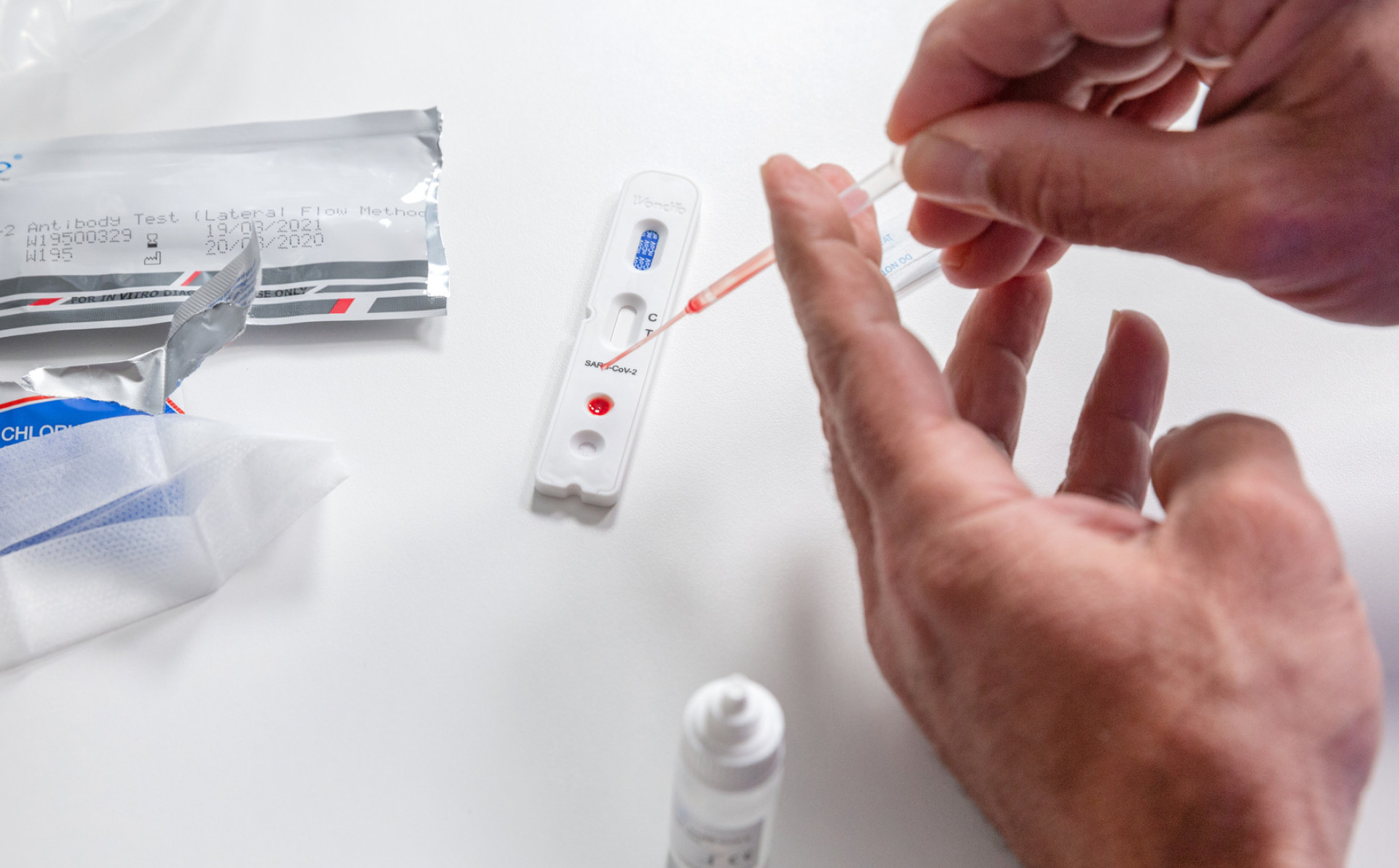T cell immunity: What is it and how does it help to protect us from COVID-19?

Over the past few months, you’ll have heard a lot about the importance of antibodies and how they can help us to understand our immunity to COVID-19.
While antibodies are undoubtedly a vital piece of this puzzle, scientists are also investigating the role of T cells, white blood cells which work in several different ways to help protect us from diseases like COVID-19.
More research needs to be done to fully understand the relationship between our T cells and immunity to COVID-19. Early findings suggest that they may provide us with long-term protection against the disease. T cell responses could also help to explain why some people recover relatively quickly from COVID-19, but others continue to suffer chronic after-effects for months following infection.
To find out more, we spoke to Professor Rosemary Boyton (RB) and Professor Danny Altmann (DA), who recently published a paper in Science Immunology on what we know so far about T cell immunity in COVID-19.
What are T cells and why are they important?
DA: For your immune system to fight off any kind of invader, such as a virus, you need a kind of white blood cell called a B cell, which makes antibodies, and a similar-looking white blood cell called a T cell.
RB: T cells can play different roles. They can act as “killer cells”, attacking cells which have been infected with a virus or another kind of pathogen, or they can act as “helper cells” by supporting B cells to produce antibodies.
What can T cells tell us about our immunity to COVID-19, and is this different from what an antibody test might reveal?
DA: Since the start of the pandemic, there’s been a lot of discussion about how to test immunity to COVID-19. We started by thinking that antibody testing would be game-changing because it would tell you at an individual level if you’d been infected or not, and whether or not you were immune. However, there were several problems with that idea. The antibody tests developed at the beginning of the pandemic didn’t work very well and it took a lot of time to sort out. It then transpired that antibodies probably wane quite quickly, and it might only be possible to detect them eight to ten weeks after infection. That could mean that you no longer have any immediate protection from the virus after that time and no way of proving whether you’ve been infected.
With other coronavirus infections, such as SARS and MERS, the hypothesis has always been that T cell responses offer far more durable protection. In one of the papers discussed in our recent article, researchers in Singapore analysed people who had SARS 17 years ago and demonstrated that they still have rip-roaring T cell responses to the virus. This suggests that T cell responses can be quite long-lasting and that they might offer a more definitive way of showing who has been infected and who hasn’t. The only catch is that researchers haven’t proved that T cells in their own right are protective.

RB: It’s also important to understand that an antibody response in itself doesn’t necessarily mean you are protected from the virus. People who have had a positive antibody test may not have functionally relevant antibodies to defend them from COVID-19 infection.
Another point to emphasise is that, although your antibody responses might wane following natural infection, if a vaccine is developed that promotes strong antibody responses, the antibody response to the vaccine may be longer-lasting. Also, with a vaccine there is the option of an additional booster vaccination to improve antibody levels.
The key message here is that T cell responses may have longevity. We need to understand the impact of cross-reactivity of T cell responses. If you’ve been previously infected by another kind of coronavirus, does that help to protect you from COVID-19 or alter the pattern of disease or disease severity? Cross-reactivity will also need to be considered when designing and validating potential diagnostic tests. It’s essential to sort out which T cell responses are specific to SARS-COV-2 coronavirus.
What else can the latest research tell us about T-cell immunity in the context of COVID-19?
"It looks like different sub-families of T cells may be important at different times during infection" Professor Rosemary Boyton
DA: When people become unwell from COVID-19, we know that their white blood cell count goes down a lot, but it’s their T cells that are particularly impacted. We don’t know yet whether the T cells actually die, or whether they’ve just moved somewhere else. One confusing thing is that, with COVID-19, you can have bursts of T cells that are both activated and exhausted-looking and it’s difficult to explain why this is.
I think the good news is that most people who’ve been infected – from those who are hospitalised through to those who are asymptomatic – seem to have decent levels of T cell immunity. It’s also a very widely targeted immunity, meaning that an array of different proteins made by the virus become targets for T cells.
RB: Based on the current research, it also looks like different sub-families of T cells – killer and helper cells – may be important at different times during infection.
How do we test T cell immunity – is this currently something that could be done at home?
DA: At the moment, methods for T cell testing are reasonably high-tech hospital laboratory tests. While it’s hard to imagine that there would ever be T cell testing kit sold on your local high street, we’re not the only people talking and thinking about this and there are huge numbers of people working on creating more accessible, point-of-care kits. I’d say watch this space.
RB: The key thing is to do the research and development to identify specific immune biomarkers of SARS-CoV-2 infection that can then be used to develop diagnostic tests for SARS-CoV-2. Once you’ve worked that out, it might be possible to roll out a test that would be technically straightforward and could be validated and carried out routinely in a hospital clinical lab.
What should be the priorities for future research when it comes to T cell immunity and COVID-19?
RB: It will be important to understand the relationship between T cells and B cell responses to SARS-CoV-2. We need to understand cross-reactivity between established, historical responses to other coronaviruses and SARS-CoV-2. Also, to understand T cell responses in individuals with mild disease or those who are asymptomatic or symptomatic, but never make an antibody response.
Above all, we need to understand the correlates of protection for this infection – which T cell responses are protective in most people and how long do they last – and to be able to measure these responses accurately in individuals in the community. It may be that T cell responses correlate with long-term protection for individuals, and that’s a really important question to answer, particularly if antibody levels wane relatively quickly. We urgently need to understand this if we are going to protect the community as a whole from COVID-19 over the coming year(s). At the moment, we don’t know what proportion of the population is effectively protected from the virus. This makes it very difficult to manage and predict what might happen in the future.
'SARS-CoV-2 T cell immunity: Specificity, function, durability, and role in protection' by Daniel M. Altmann and Rosemary J. Boyton is published in Science Immunology.
Article text (excluding photos or graphics) © Imperial College London.
Photos and graphics subject to third party copyright used with permission or © Imperial College London.
Reporter
Ms Genevieve Timmins
Academic Services